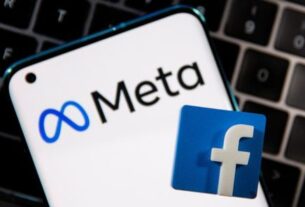
AI Won’t Directly Replace Jobs but Will Profoundly Reshape Them, According to Experts and Industry Insiders, Who Emphasize the Need for Employees to Adapt and Collaborate with AI as a Decision-Making Enhancement Tool
At Imagine 2023, hosted by Automation Anywhere, the question on most attendees’ minds is how AI, especially Generative AI, will impact the future of work and whether it will result in job losses. The answer, as often is the case with such complex matters, is nuanced. While many experts believe that AI will augment human workers rather than replace them, the transformation underway in the business world suggests a shift from the conventional wisdom of ‘don’t fix what’s not broken.’
Companies are recognizing the need to continuously adapt, embrace new technologies, and stay competitive in a rapidly evolving landscape. About a year ago, the rise of Generative AI, represented by entities like ChatGPT and Midjourney, prompted businesses to integrate AI into their workflows. This transformation, while enhancing productivity in some cases, also led to job displacement.
Fast forward ten months, and it’s apparent that companies are changing their approach. Instead of discarding talent, they are committed to re-skilling employees, equipping them with the necessary skills to harness AI’s potential, and redeploying them in different roles while using Generative AI to enhance productivity and efficiency. Job security today seems more assured than it did a year ago, even as companies continue to adapt to the AI revolution and increase efficiency. However, it’s clear that the nature of jobs is evolving, as industry leaders believe.
Learning and Re-learning Workers will need to acquire new skills and competencies to effectively collaborate with Generative AI systems, which will become essential tools in various professions. For instance, designers can use AI to enhance their creative processes, while healthcare workers can automate many tasks, allowing them to spend more time providing personalized experiences to patients.
“People have asked these questions about job losses throughout history, especially since the industrial revolution. The trend will likely be that people will adapt, become more productive, and once they do, we can transition them to other service areas, offering more personalized experiences,” explained a senior Infosys executive during Imagine 2023, an annual AI and automation conference featuring leading industry players such as AWS, Cognizant, and Wipro.
Of course, this re-skilling requires investment from employers and educational institutions in programs that facilitate continuous learning. Most organizations venturing into AI are now educating their employees and have training programs in place to create a more innovative and adaptable workforce for the future. The executive mentioned that her company was offering classes for employees to earn certificates and become experts in specific areas or projects, enabling them to stay updated with evolving requirements.
No More Mundane Mondays One key way businesses are leveraging AI is through task automation. Repetitive and mundane tasks like data entry and document sorting can be effectively delegated to AI-powered systems. This frees up valuable time and cognitive resources for employees to focus on more strategic and creative aspects of their work.
For example, in the healthcare industry, administrative paperwork can consume a significant portion of a healthcare worker’s shift, reducing their time with patients. AI can streamline these administrative tasks, making healthcare workers happier, less stressed, and more efficient. Similarly, in industries like finance, healthcare, and marketing, AI aids decision-making by providing data-driven insights. Machine learning algorithms allow employees to quickly analyze large datasets and make informed choices, especially in areas where data accuracy and timeliness are critical.
Collaboration with AI-powered chatbots and virtual assistants is another avenue for boosting efficiency. These tools streamline communication, schedule meetings, and provide instant access to information, enabling employees to work more effectively and reduce administrative overhead.
As AI continues to advance, employees who embrace these technologies are well-positioned to excel in their roles. By incorporating AI into their workflows, they can enhance efficiency, improve decision-making, and ultimately drive innovation in their respective fields.


